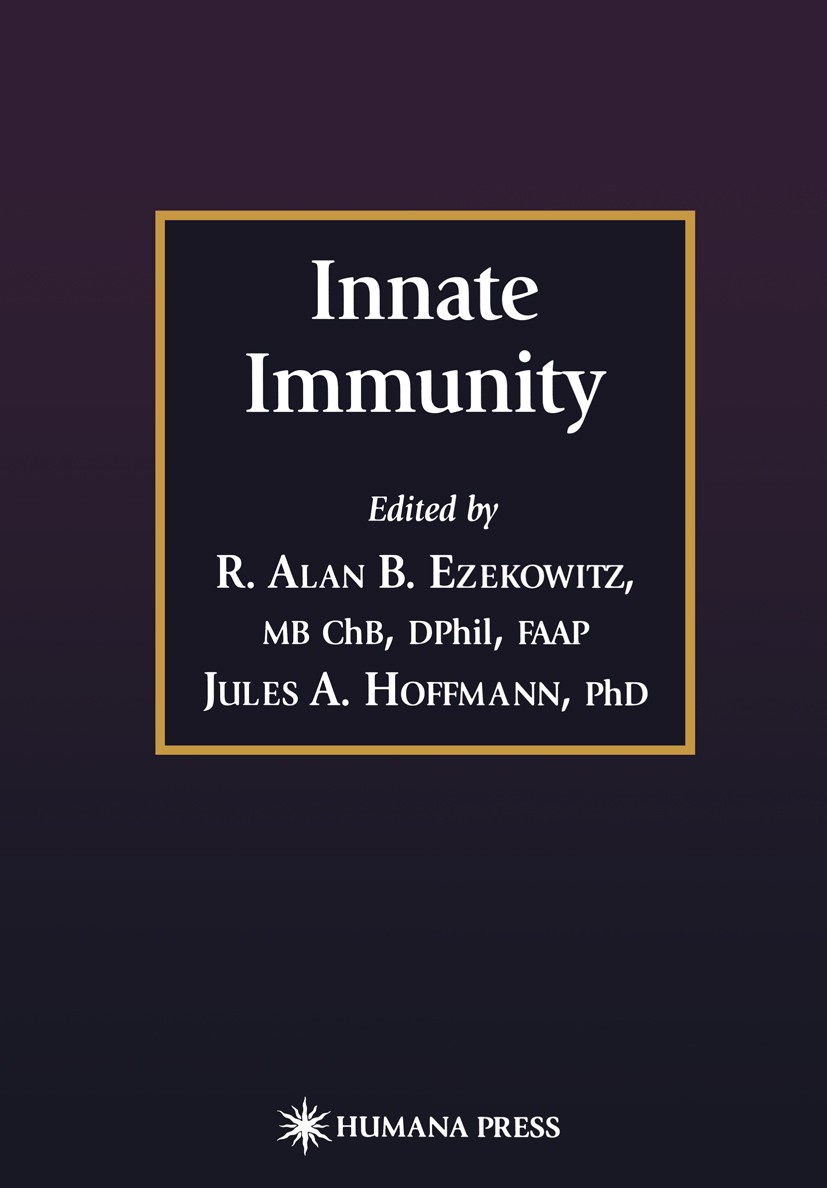| 书目名称 | Innate Immunity | | 编辑 | R. Alan B. Ezekowitz,Jules A. Hoffmann | | 视频video | http://file.papertrans.cn/467/466585/466585.mp4 | | 概述 | Includes supplementary material: | | 丛书名称 | Infectious Disease | | 图书封面 |  | | 描述 | The concept of innate immunity refers to the first-line host defense that serves to limit infection in the early hours after exposure to microorganisms. Recent data have highlighted similarities between pathogen recognition, signaling pathways, and effector mechanisms of innate immunity in Drosophila and mammals, pointing to a common ancestry of these defenses. In addition to its role in the early phase of defense, innate immunity in mammals appears to playa key role in stimulating the subsequent clonal response of adaptive immunity. Recent exciting information has determined that the templates that are laid down in primitive life forms, like flowering plants and insects, form the basic principles of first line host defense that are conserved in mammalian systems. The next frontier in the field is to understand the dynamic adaptive changes that occur as a result of the inter play between host defenses and infectious agents. One emerging theme is that microorganisms are constantly seeking ways to co-opt host defenses. On the other hand, host defense to infection is mediated by the coordinate action of pattern recognition molecules and receptors that, in mammals, are important and | | 出版日期 | Book 2003 | | 关键词 | Chemokine; infection; innate immunity; proteins; resistance | | 版次 | 1 | | doi | https://doi.org/10.1007/978-1-59259-320-0 | | isbn_softcover | 978-1-4684-9746-5 | | isbn_ebook | 978-1-59259-320-0 | | copyright | Springer Science+Business Media New York 2003 |
The information of publication is updating

|
|
 |Archiver|手机版|小黑屋|
派博传思国际
( 京公网安备110108008328)
GMT+8, 2026-1-24 19:15
|Archiver|手机版|小黑屋|
派博传思国际
( 京公网安备110108008328)
GMT+8, 2026-1-24 19:15


